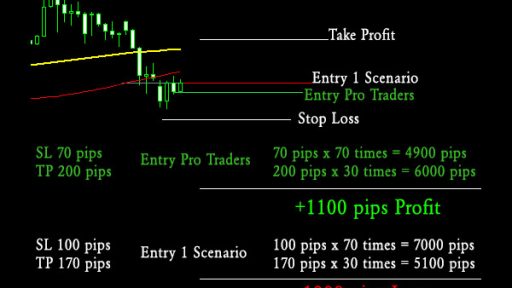- Home
- >
- Trading University
- >
- Top rules of the successful trader

Top rules of the successful trader

The professional trader is always disciplined and patient on the market. Whether you are trading forex, stocks, indices, or cryptos, proper positioning is crucial to your long-term success in trading.
1. Always wait for the correct entry price
Many beginner traders enter the market with excitement of profits potential and ignore discipline. This provokes many sinful decisions that are dictated by intuition and emotion rather than by analysis and assessment of the situation. Such decisions lead to very early or late market entry and limits the ability of traders to long-term profits. For example, Japanese candlestick signals at levels of support or resistance, which are very common entry criteria. When the amount of stop loss is too high, the professional trader waits for a 30% or 50% correction of the formation to fine-tune the risk. If this adjustment does not happen and the price sharply moves in the expected direction, experienced market participants miss out on a deal and beginners do not. Calculated statistically in the long run when stops are hit, beginners will lose more, and when they take profits, they will earn less. Assuming that the knowledge of the direction of the next movement is the same and repeated 100 times this trade is possible traders who did not wait for the adjustment to loose, and the pros profit. Here's the mathematical explanation:
As it can be seen from this example, if the engulfing bar allows for a 100-pips stop loss for a trade without a correction, and a SL of 70 pips after a 40% correction of the formation, then the professional has waited a 30-point correction, but as we see when repeating this trade 100 times the results will be radically different.
2. Entering the market when the price has gone away is an unnecessary risk to the professional trader
With the boom of robots and dynamic development of the forex and cripto, markets have become more intense and impulsive. Professional traders are very patient and enter the market only when the criteria of their trading plan are met and when the price is good (due to the first rule). Alternatively, beginners are chaotic on the market even when the price has shifted away from the formation that would give them the right expectation of a positive long-term outcome. Most often, such deals are provoked by "revenge trading", emotions, or a desire for quick profits. This leads to total chaos: short-term small profits and long-term large losses. Do not forget that if you enter the market chaotic, the chance to exit the market again emotionally and without any criteria and analytical expectations is close to 100%. This is something you should try to avoid when trading in the financial markets.
3. Money Management is the most important rule in trading
If you think you can achieve near-100% guess rate of the next direction of market movement, this business is likely to cause you a lot of losses. A success rate over 50% is almost impossible in the long run. However, the disciplined implementation of your Money Management plan may lead to permanent profits. Professional traders apply their entire strategy and MM with extreme precision, which is the only way to profit from trading in financial instruments (or if there is another one I am not aware of it). In addition to the first rule of waiting for an appropriate entry price, the deal volume is also key factor for long run winnings. Professionals never risk more than what the approved Money Management plan allows them to. Typically, 1% to 2% of the total account is the maximum allowable loss that will not affect our future trading decisions.
In the example above, you may see something extremely wrong, which you should not do in the financial markets. Always assign the same volume of your deals to different financial assets classes. For example, if your EURUSD volume is 10 lots, it is extremely illogical for AUDUSD to be 0.2 lots. The risk for each transaction must be the same, and each subsequent deal must have the entry criteria as the previous one. Then your analysis and score statistics will help you improve your returns and will not prompt you to the chaos and probable bankruptcy of your trading account.
 Varchev Traders
Varchev Traders Read more:
If you think, we can improve that section,
please comment. Your oppinion is imortant for us.













